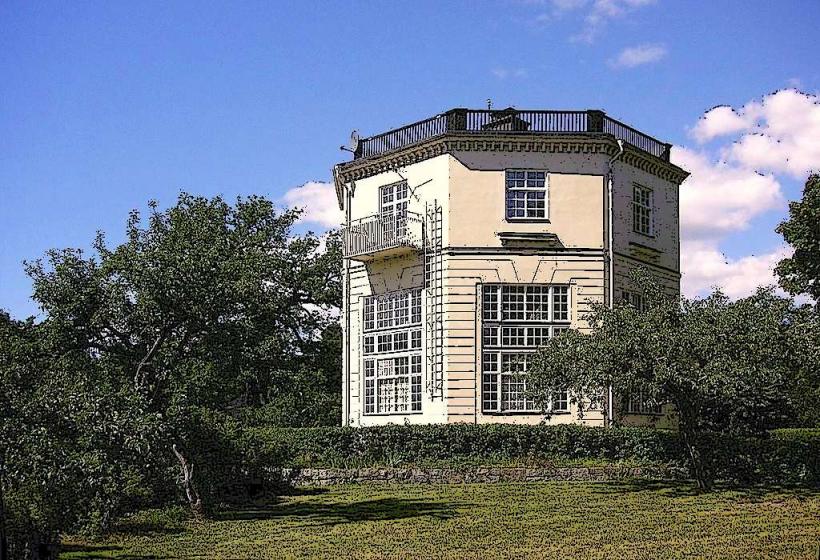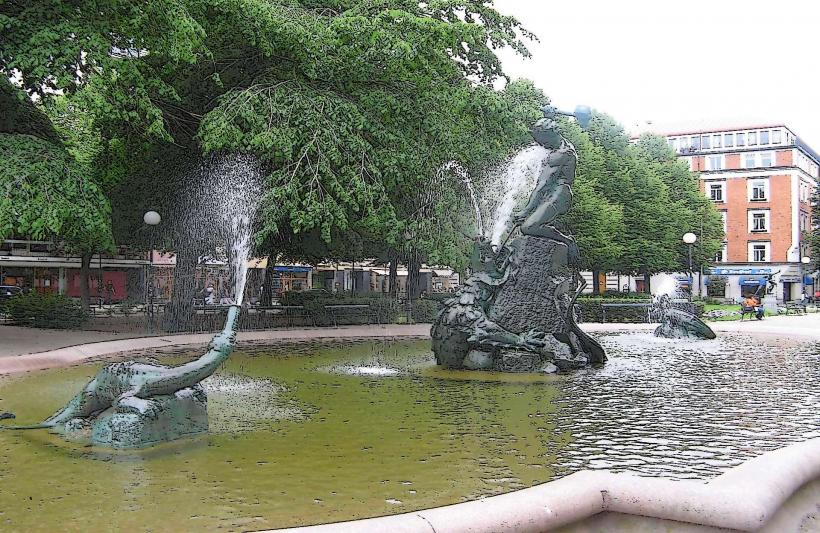Information
Landmark: Tyresta National ParkCity: Stockholm
Country: Sweden
Continent: Europe
Tyresta National Park, Stockholm, Sweden, Europe
Tyresta National Park is one of Sweden's most significant and well-preserved natural areas, located just outside Stockholm. It is renowned for its pristine forest landscapes, diverse wildlife, and its proximity to the urban sprawl, making it an accessible and popular destination for nature lovers, hikers, and outdoor enthusiasts. Here’s a detailed overview of Tyresta National Park:
1. Overview and Location
Geography and Size: Tyresta National Park is located in the southern part of Stockholm County, about 20 kilometers south of Stockholm’s city center. The park covers an area of approximately 5,000 hectares (about 12,355 acres), offering a substantial natural space to explore.
Proximity to Stockholm: Due to its location near the capital, Tyresta is easily accessible for both locals and visitors, making it a popular escape from the city. The park is part of the larger Tyresta Nature Reserve, which also includes surrounding forested areas and is connected to the Tyresta village.
2. Natural Landscape
Old Growth Forests: One of the key features of Tyresta National Park is its well-preserved ancient forest, which is one of the few remaining areas in Sweden that has not been significantly altered by human activity. These forests feature towering spruce trees, pine trees, and a variety of deciduous trees, creating a tranquil and unspoiled natural environment.
Rich Flora and Fauna: The park is home to a diverse range of plant and animal species, including rare mosses, lichens, and wildflowers that thrive in its undisturbed habitats. The wildlife in Tyresta includes animals such as elk, wild boar, red foxes, and deer, as well as various bird species, including the black woodpecker and dipper.
Lakes and Wetlands: Tyresta also features several lakes and wetlands, such as Stora Tyresöträsk and Lilla Tyresöträsk, which add to the park’s diversity of ecosystems. These bodies of water are home to numerous aquatic species and provide scenic viewpoints for visitors.
3. Trails and Activities
Hiking Trails: The park boasts an extensive network of well-marked hiking trails that cater to various levels of experience and fitness. Popular trails include:
- The Sörmlandsleden Trail, which runs through the park, offering a long-distance route for experienced hikers.
- Shorter loops like the Hälsans stig (Health Trail), which is a gentle walk designed for families, with interpretive signs along the way explaining the natural environment.
Cycling: Although much of the park is best explored on foot, there are also paths suitable for cycling, particularly on the outer edges of the park. Cyclists can enjoy the park’s scenery while riding along more accessible routes.
Winter Activities: In winter, Tyresta National Park is a popular destination for cross-country skiing, snowshoeing, and winter hiking. The peaceful, snow-covered forests create a serene atmosphere perfect for winter outdoor activities.
Nature Education: There are nature information centers within and near the park, such as the Tyresta Visitor Center, where visitors can learn about the park’s history, wildlife, and ongoing conservation efforts. The center provides educational exhibits, interactive displays, and guided tours that are particularly engaging for families and school groups.
4. Conservation and Protection
Environmental Significance: Tyresta National Park was established in 1993 to preserve the natural landscapes and ecosystems of the region. It is part of Sweden’s larger efforts to protect its natural heritage and biodiversity. The park is managed by Naturvårdsverket (Swedish Environmental Protection Agency) and is part of the larger Tyresta Nature Reserve, which also includes areas outside the national park.
Wildlife Protection: Tyresta is a critical site for biodiversity conservation in Sweden. The park’s varied habitats support numerous species of plants and animals, some of which are rare or threatened. The forest has been largely untouched by human activities, offering an invaluable glimpse into the natural landscape that existed in Sweden prior to industrialization.
Sustainable Tourism: Efforts are made to balance public access with conservation. The park encourages eco-friendly tourism and offers guidelines for responsible outdoor activities, such as staying on marked trails and minimizing environmental impact.
5. Visitor Facilities
Visitor Center: The Tyresta Visitor Center is located near the park entrance and serves as the main hub for visitors. It offers detailed maps, educational exhibits about the park’s flora and fauna, and information on current events or guided tours. The center also has a small gift shop and cafe where visitors can relax and enjoy locally sourced refreshments.
Cafes and Restaurants: There are several nearby cafes and restaurants in the surrounding area, particularly in Tyresta Village and Tyresö, where visitors can enjoy Swedish pastries, coffee, or a full meal. These establishments often feature local ingredients and traditional Swedish dishes, providing a cozy spot to warm up after a day in the park.
Camping: There are designated areas for camping around the park, allowing visitors to immerse themselves in the park’s natural beauty. While the park doesn’t have large-scale campgrounds, there are spots for wild camping (in accordance with Swedish “Allemansrätten” or the right to roam) in the surrounding areas, as long as it’s done respectfully and responsibly.
6. Flora and Fauna
Flora: The park’s forests are primarily composed of boreal forests with a mixture of coniferous trees, including pine, spruce, and fir. The ground cover is rich with mosses, lichen, and wildflowers, creating a vibrant yet tranquil forest floor.
Fauna: The park is home to a diverse range of wildlife. Visitors may encounter elk (moose), wild boar, deer, and foxes. There are also a wide variety of bird species, including hawks, owls, and woodpeckers. The park's lakes and wetlands are home to various aquatic species, including beavers, otters, and numerous waterfowl.
7. Accessibility and Transportation
By Public Transport: Tyresta National Park is easily accessible from Stockholm by public transportation. Visitors can take the metro (Green Line) to Handen Station and then catch a bus or taxi to the park’s entrance. The Tyresta Visitor Center is a popular starting point for many visitors.
By Car: For those driving, the park is accessible via major roads from Stockholm, making it a convenient destination for day trips from the city. Parking is available at various points near the park entrances.
8. Conclusion
Tyresta National Park offers an incredible natural escape just outside Stockholm, providing visitors with the opportunity to explore Sweden’s ancient forests, pristine lakes, and rich biodiversity. Whether hiking, skiing, or simply enjoying a peaceful day in nature, Tyresta’s serene landscapes make it a perfect destination for outdoor activities year-round. Its blend of conservation efforts, natural beauty, and proximity to Stockholm make it an essential part of Sweden’s national parks and a must-visit for anyone interested in experiencing the country’s wilderness.

























